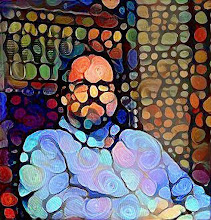What is the role of a critic? What is the difference between a critic and a reviewer?
An on-line literary journal/blog asked the question today: is strong criticism necessary for a climate in which great art can flourish? Is it not true that when music history is written, one of the ways artistic movements are measured is by how critics wrote about the work?
I like the question. Does art flourish under strong criticism? Why do we empower critics to make or break an artist or a work of art? All of us who work in the arts have certainly complained about enough of them (the critics), so why are they given this power?
There's been quite a fuss over a reviewer/critic in the Chicago area who recently wrote in her reviews of WICKED, that she saw the schoolchildren's uniforms as being patterned after the clothes concentration camp inmates were forced to wear, and claimed that with the casting of an African-American actor "the Scarecrow is now revealed to be a lynched black man."
Certainly she has the right to interpret the show in any way she chooses (though it's extremely odd that no other person in the world has publicly written of similar thoughts [that I know of]), and thankfully WICKED doesn't need any more rave reviews to pack it's houses, but what of the rising artist who maybe only gets one shot and a reviewer who is famous for finding semitic and anti-semitic nuances where are none are intended and no one else has ever seen them, is the one to review the play?
Perhaps what we need for art to flourish is not more or better artists, but better critics to report on the art.
Wednesday, July 20, 2005
Subscribe to:
Post Comments (Atom)

No comments:
Post a Comment